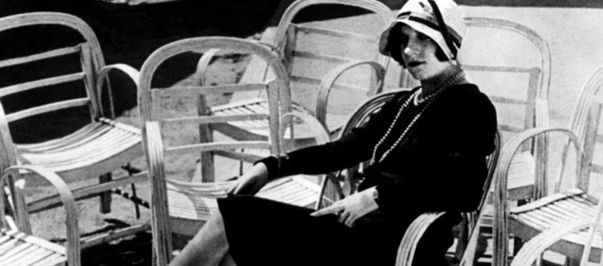The 1930s, captured by film and piano
Talent Press Guadalajara participant José Juan Zapata Pacheco reports from the Michael Nyman Gala evening. where Nyman's Film WITNESS I (2008) was screened alongside Jean Vigo's À PROPOS DE NICE (1930).

Jean Vigo's À PROPOS DE NICE at the Talent Campus Guadalajara's Michael Nyman Gala evening.
Even if we tried, we will never be able to repeat the experience of the first audience that faced a screen ever. We can imagine their surprise as the train approached them; that thin line between reality and fiction, but we will never be able to share the same naïveté.
The nostalgia for the origin of cinema has invaded not only famous studio mega productions, but also creators from other circles. To set to music silent films has become a very popular and recurrent activity. Films like A TRIP TO THE MOON by Méliès, or THE CABINET OF DR. CALIGARI by Wiene are now masterpieces subject of rework by musicians from all genres and origins. In Mexico, classics like LA BANDA DEL AUTOMOVIL GRIS have returned to the widescreen thanks to these cinematographic nostalgia exercises.
Michael Nyman, key character of cinema’s music, turned to Jean Vigo to set to music his documentary film À PROPOS DE NICE, in which the French director depicts the bourgeoisie of the 1930s; the frivolity in the streets and beaches of this touristic centre, the contrast with the working classes in the city. This half hour movie was screened at a gala at Teatro Diana, in Guadalajara within the framework of the 27th International Film Festival. Nyman at the piano set to music the film, as well as the video WITNESS I, with a composition of his authorship; he also interpreted a set of pieces of his repertoire.
WITNESS I presents us with a sequence of unknown faces. A compilation of old photos, front and side view, overexposed and superimposed on the image of a wood fence, fading away slowly. There are no references, only a couple of legends on the photographs, indicating names, origins and dates. The sad look of these anonymous people; we face them and wonder who they are, where they came from, how they lived and what could have happened to them. In fact, they are Jews and gypsies whose destiny was the Nazi concentration camps: victims of one of the most tragic events of the 20th Century.
Nyman sets up this video against the work of Vigo to reinforce his social critic of À PROPOS DE NICE: the joy of the rich ones and the horror that is about to come; the celebration and the tragedy; the 1930s from different points of view.
Nyman's music adds an extra value to the screening. New technologies and cinematic forms allow us to enjoy live music at the movie theater, which makes it a very attractive show, at the same time and for a few minutes, recreating the whole experience of silent films. However, these artworks, in comparison with other silent movies, don’t need incidental music to guide the narrative or to direct the audience’s emotions. Nyman suggests atmospheres, environments, and a delicate accompaniment for the images to transmit a message.

